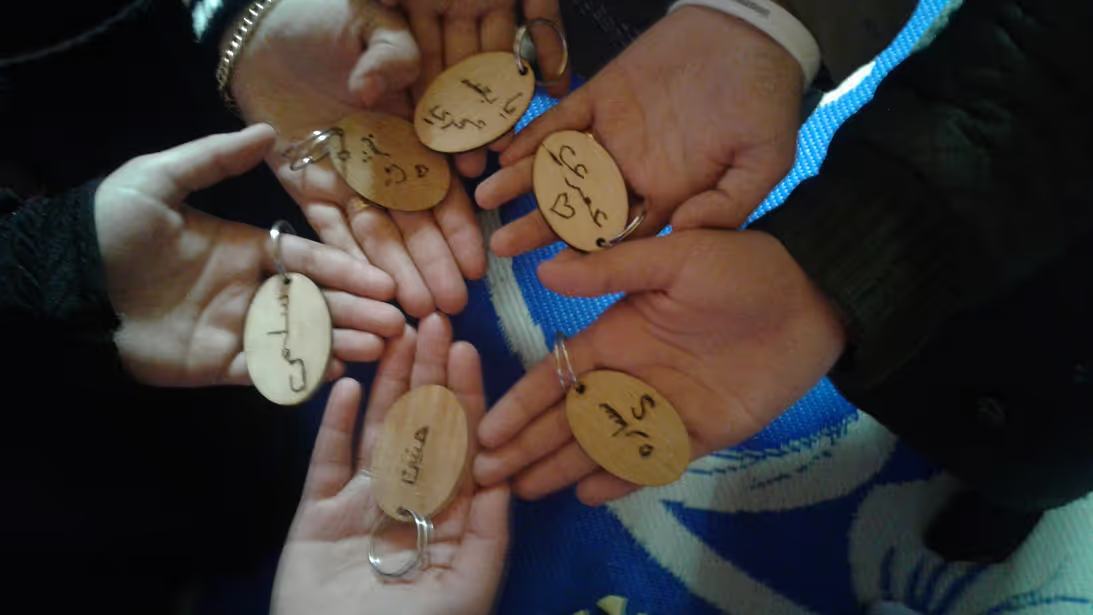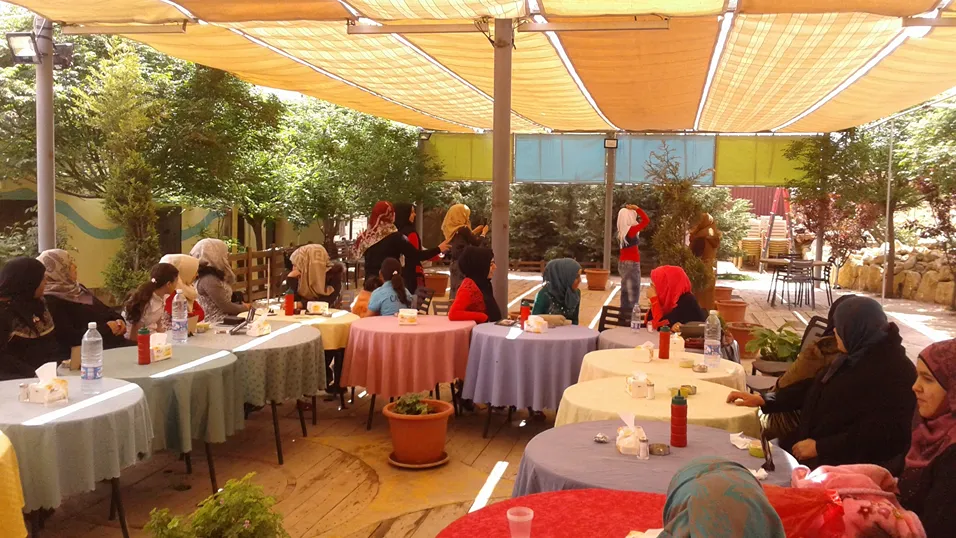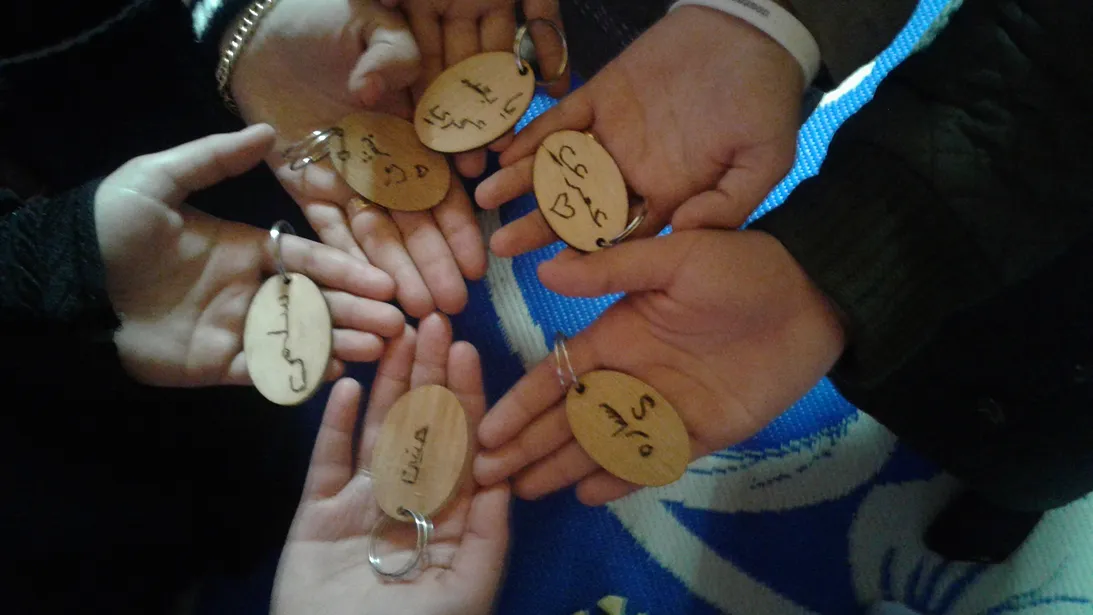IRC Research Officer on Project Rewards and Challenges in Lebanon

For the past year, I have been working with IRC on a research project to evaluate the impact of programming for early marriage in refugee communities in the Bekaa region of Lebanon. The Early Marriage Life Skills Tailored Package Curriculum consists of 20 sessions, which aim to empower Syrian and Lebanese married and engaged adolescent girls in Lebanon by providing them with vital information and skills for their physical and psychosocial wellbeing and to increase their resilience to GBV. The package is implemented with a closed group in a mobile safe space that guarantees the confidentiality and comfort of the participants. For those girls not able to participate in the Tailored Package Curriculum, IRC offers a Rapid Response program, in which a case worker provides a shortened, individually-tailored version of the life skills sessions.For the past year, I have been working with IRC on a research project to evaluate the impact of programming for early marriage in refugee communities in the Bekaa region of Lebanon. The Early Marriage Life Skills Tailored Package Curriculum consists of 20 sessions, which aim to empower Syrian and Lebanese married and engaged adolescent girls in Lebanon by providing them with vital information and skills for their physical and psychosocial wellbeing and to increase their resilience to GBV. The package is implemented with a closed group in a mobile safe space that guarantees the confidentiality and comfort of the participants. For those girls not able to participate in the Tailored Package Curriculum, IRC offers a Rapid Response program, in which a case worker provides a shortened, individually-tailored version of the life skills sessions.

Witnessing and measuring the impact of programming on participants makes this research exciting and a rewarding experience. Getting to know the community and participants better has been a very insightful experience. Adolescent girls enjoyed expressing themselves through art and discussion. It put a smile on their faces to identify the changes they went through, and the skills and friendships they have developed. I was personally able to see their evolution when I shadowed sessions throughout each cycle, and finally when sitting with the girls myself, I noticed their increase in confidence, feelings of hope, and empowerment. I was also surprised when men expressed their wishes to be more involved in the program and receive the same information and life skills that their wives are receiving. I believe this is an important lesson to include when working towards gender equality and I will definitely be advocating to include more male engagement in women’s empowerment programming going forward.
Women’s empowerment is a cause that touches me on a personal level. Being able to do this work with the most vulnerable individuals in society both important and a milestone for reaching gender equality, so I take it to heart to try to implement changes that will maximize the program’s usefulness and the ability of participants to benefit from it, which I believe is also the purpose of our research.

As I reflect on the research preparatory process, there were several challenges that my team and I sought to overcome. First, it was challenging to develop a framework for how we would qualitatively assess the impact of our programming and understand the drivers of child marriage amongst the Syrian population displaced in the Bekaa. After months of careful planning, it was rewarding to see the project come together. For me, my main concern was to collect the most accurate and representative data in a way that is respectful of the girls’ and families’ time and in a way that would not overburden our programme staff.
Second, implementing the research in tandem with the program timeline was a challenge. Due to the operational needs within communities, our program staff increased the frequency of sessions per week and the number of cycles implemented in different locations within the communities. As the only researcher collecting data, it was incredibly challenging to adjust our proposed timeline and ensure that we were able to observe as many sessions as possible, as our different program locations are up to two hours away from one another.
Third, preparing contingency plans should security issues arise unexpectedly has been a challenge. Although delays in data collection are always something to be anticipated, maintaining a flexible data collection schedule has helped our team to think through possible actions to take if security issues arise and clearance to certain areas is restricted -- for example where feuds between community members, or between community members and armed forces occur, or when the country’s general political situation is critical.
WRC’s research team at International Medical Corps (Ethiopia) has finished data collection for the prevalence study on child marriage. Preliminary results for the prevalence study are ready and were launched for stakeholder feedback in July. Final results should be ready by the end of September. We have trained the IMC team to prepare for data collection for the Ethiopia evaluation study.
International Rescue Committee (Lebanon), and Kachin Development Group (Myanmar) are currently collecting data for the prevalence studies. IRC is also conducting data analysis for the evaluation. Both IRC’s prevalence and evaluation studies will be finished at the end of September. A evaluation study will not be conducted in Myanmar.
Research underway in Ethiopia and Myanmar are supported in partnership with JHU and in Lebanon in partnership with LAU.
By Mona Tawk
Research Officer, International Rescue Committee
Stay updated
Sign up for our newsletter to receive regular updates on resources, news, and insights like this. Don’t miss out on important information that can help you stay informed and engaged.
Related articles


.png)
Explore Elrha
Learn more about our mission, the organisations we support, and the resources we provide to drive research and innovation in humanitarian response.